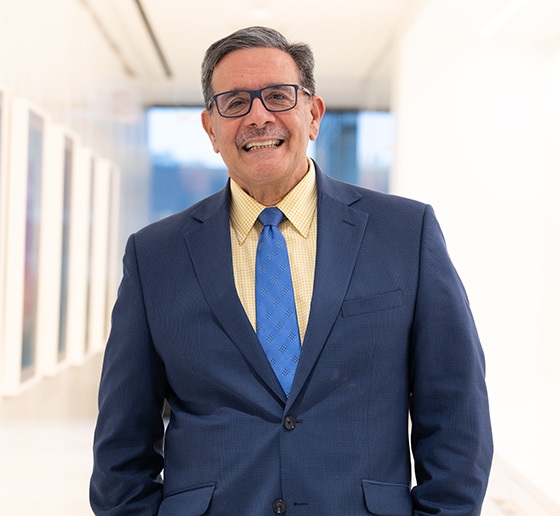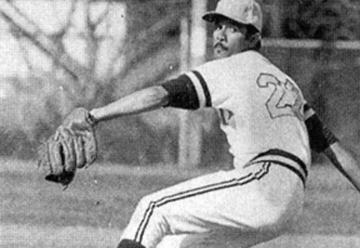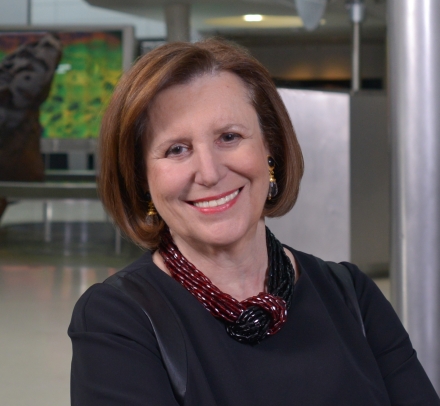Rolando T. Acosta CC ’79, LAW ’82: Presiding Over Justice, In and Out of the Courtroom
After serving for a quarter century as an innovative and community-minded trial and appellate judge, Acosta, one of this year’s Medal for Excellence recipients, remains deeply committed to judicial independence and community service.

Rolando Acosta CC ’79, LAW ’82 was a star long before he became the first Dominican elected to the New York State Supreme Court in New York County, before he spearheaded the creation of one of New York City’s earliest neighborhood-based community courts, before he modernized and reformed the Appellate Division, First Department, as its presiding justice. Even before he entered Columbia Law School.
His decision to enroll at Columbia College—as a hard-throwing pitcher at DeWitt Clinton High School with a 17-1 record, on his way to a citywide championship, and with offers from multiple Ivy League schools—made The New York Times. He had arrived from the Dominican Republic, speaking no English, just five years earlier.
“Rolando Acosta is a winner,” the newspaper of record reported.
That hasn’t changed. After graduating from Columbia Law, Acosta went on to become a public interest lawyer and civic leader in Washington Heights, then served for a quarter century as an innovative and community-minded New York judge, presiding over hundreds of bench and jury trials and thousands of appeals of complex civil and criminal cases. After retiring from the bench in 2023, he is now a partner at Pillsbury Winthrop Shaw Pittman.
Throughout his career, Acosta has remained an engaged alumnus. He is a Columbia University trustee emeritus and a member of the Law School’s Dean’s Council. He previously received the university’s Medal for Excellence and the Law School’s Wien Prize for Social Responsibility. He’s also a member of the university’s Athletic Hall of Fame, having led Lions baseball to two Ivy League championships. He still holds university records for most wins, starts, and innings pitched.
“I’ve participated in the life of Columbia for decades, mostly because of what Columbia did for me and my family,” Acosta says. “Columbia just opened a world to me that I didn’t know existed, both intellectually and in every other respect. … I don’t think I exaggerate when I say that Columbia changed my life.”
For his achievements and his service, the Law School will present Acosta with the Medal for Excellence, its highest honor, on February 23 at Cipriani 42nd Street in New York City, along with fellow honoree Alia Tutor ’00.

Following a Path to Public Service
As a law student, Acosta recalls the “terror” of being grilled by civil procedure professor Hans Smit ’58, a former competitive water polo player who informed Acosta on the opening day of class that he, not the Lions’ pitching ace, was the best athlete at Columbia Law. But he also recalls being “embraced” by Kellis E. Parker, the first Black professor at the Law School, and the excitement of studying with Ruth Bader Ginsburg ’59, the first female tenured professor at the Law School. Acosta also relished his clinical experience, representing Haitian immigrants, taught by Harriet Raab ’66.
As a newly minted lawyer in 1982, Acosta wouldn’t consider working anywhere but The Legal Aid Society: When he was a teenager, Acosta’s family fell behind on the rent, and a Legal Aid Society lawyer helped them avoid eviction. At Legal Aid, Acosta worked as attorney-in-charge of the largest civil trial office and as director of government and community affairs. As Washington Heights became a center of Dominican immigration, Acosta also became involved in organizing social services infrastructure. “We didn’t have English as a Second Language classes; we didn’t have citizenship classes,” he says. “There was nothing.” He helped found the Latino Commission on AIDS, served as legal adviser to the founding board of Alianza Dominicana, was involved with the Hispanic Federation, and was a founding board member of the Upper Manhattan Empowerment Zone.
Elected in 1997 to the New York County Civil Court, Acosta rose to the New York State Supreme Court in 2002. He was the first Dominican to serve in that capacity, and he spearheaded the creation of the Harlem Community Justice Center, a multijurisdictional community court program that tried to address underlying causes—often addiction or family issues—that landed young people in court on criminal charges.
“I worked with community pastors, clinicians. We had a psychologist in my court,” he says. “It was a very different approach to justice.”
In 2008, he was appointed by the governor to the New York State Appellate Division, First Department, and when, in 2017, he became its Presiding Justice, he took a different approach there, too. Determined to keep the court’s status as “the preeminent intermediate appellate court in the country,” he says, and remain competitive with Delaware’s Chancery Court or London’s Commercial Court, he modernized court practices: He instituted livestreaming of oral arguments, launched a new case-management system that allowed tracking of individual cases, and reduced the amount of time that elapsed between arguments and published decisions.
He pushed through reforms despite what he calls lawyers’ ingrained opposition to change. “We’re not a profession that changes things easily. We believe in tradition and precedent,” Acosta says, describing reactions to his plans: “‘You want to do what, Rolando? You want to change WordPerfect to Word? Are you insane?’ That kind of thing.”
His goals were excellence, transparency, accountability, and representation. “The only way that the third branch of government gets credibility,” he says, is when people who are in the system “see themselves reflected in how justice is dispensed.” Acosta continues: “Every group in our society is reflected in the group of judges that dispenses justice in the First Department. And I’m proud of that.”
Speaking Out About Judicial Independence
Since leaving the judiciary in 2023, Acosta has been outspoken about what he sees as threats to judicial independence and democracy posed by intense partisanship on both sides of the aisle. He points to the recent rejection of a state Supreme Court chief judge nominee by Democrats in the New York state legislature, and the refusal of Republicans in the U.S. Senate to give a hearing to U.S. Supreme Court nominee Merrick Garland in 2016.
Traditional norms of judicial independence and separation of powers need to be put into statutes and not simply be the byproduct of good faith, he says.
“You cannot count on civility. You cannot count on adherence to our traditions,” he says. “We have become very complacent about our democracy and our wonderful experiment. We are closer to tyranny than we think we are.”
Acosta credits his father for his commitment to judicial independence: As a union leader, his father was repeatedly jailed for political activity during the Dominican Republic’s tumultuous elections in the 1960s.
“Growing up, seeing it firsthand, I know what an overbearing executive branch is—one that tells the judiciary what to do and how to do it and have the caprice of those in power pass for justice,” he says. The separation of powers “undergirds our democracy and the rule of law. You can’t play around with that.”
